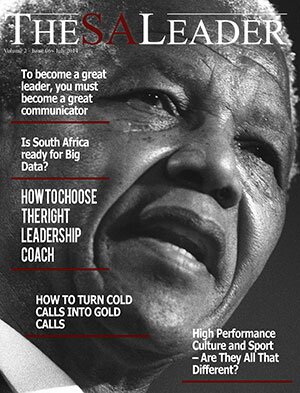SMMEs should realise the benefits of preparing financial statements
- Details
- Category: Finance News
- Created on Thursday, 24 July 2014 15:12
- Written by SAICA
The importance of preparing financial statements for Small, Medium and Micro-sized Enterprise (SMMEs) cannot be over emphasised, advises the South Africa Institute of Chartered Accountants (SAICA). Financial statements which serve as decision-making tools, are a prerequisite when applying for funding from banks as they are also used in the preparation of tax returns, aid in the preparation of budgets, as well used as essential tools for communicating financial information about the entity to key stakeholders.
Bongeka Nodada, SAICA’s Project Director of Financial Reporting Standards, says “both the understanding and proper preparation of financial statements are essential to the success of any SMME. An SMME cannot flourish in the long term without understanding where it derives its profits from, what its major expense drivers are, and what its financial position is at a specific point in time.”
“For many years, South African companies, regardless of size, have been required to compile financial statements that comply with either the International Financial Reporting Standards (IFRSs) or the Statements of Generally Accepted Accounting Practice (SA GAAP). Both these frameworks are far too complex and costly to apply in an SMME environment. SMMEs should therefore consider applying International Financial Reporting Standards for Small and Medium-sized Entities (IFRS for SMEs) to prepare their financial statements and realise the economic and other benefits from doing so over the long term. Companies with a public interest score below 350 (as determined in terms of the Companies Act 71 of 2008) have the option to use IFRS for SMEs as issued by the International Accounting Standards Board (IASB) when preparing their financial statements,” says Nodada.
Nodada adds that ”IFRS for SMEs is an internationally-recognised financial reporting framework that allows SMMEs to benchmark themselves against their local and international peers, and enhances the confidence that users can place on the entities’ accounts. IFRS for SMEs create a suitable platform for growing businesses that are preparing to enter public capital markets. It is much simpler to apply than IFRSs, as it takes into consideration the unique financial reporting needs of SMMEs, which often have limited capacity and resources. The benefits that can be derived by SMMEs in applying IFRS for SMEs to their financial statements often exceed the cost involved in preparing such financial statements.”
In addition, IFRS for SMEs is a stable framework and the changes to this standard occur less frequently than the changes to IFRSs. Since the publication of the standard in 2009, the first comprehensive review of the standard has been conducted recently. Nodada believes SMMEs should embrace the upcoming changes, as these will bring about further simplifications and relief for such entities. Most importantly, the changes are intended to address some of the deficiencies that have been identified by users of this standard.
“SAICA was the first institution in the world to develop application guidance, which was specifically designed to assist SMMEs in applying IFRS for SMEs, and has introduced several measures to assist SMMEs to apply the IFRS for SMEs. Recently, SAICA issued the ‘IFRS for SMEs Illustrative Financial Statements for Close Corporations’, and we encourage the public to comment on it,” adds Nodada.
“South Africa’s influence in the development of the IFRS for SMEs to ensure that the needs of the SMMEs owners and users locally are being catered for will continue. Presently the influence is enhanced by South Africa’s representation at the IASB’s SME Implementation Group (SMEIG), where Darrel Scott CA(SA) and Bruce Mackenzie CA(SA) are serving their second terms as chairman and member respectively. The SMEIG is an advisory body of the IASB that considers implementation questions raised by users of the IFRS for SMEs, and where relevant it issues guidance or advice to the IASB on those issues which may require amendments,” concludes Nodada.
Advertisement
The SA Leader Magazine
In the July issue
To become a great leader, you must become a great communicator
Is South Africa ready for Big Data?
How to choose the right leadership coach
HOW TO TURN COLD CALLS INTO GOLD CALLS





